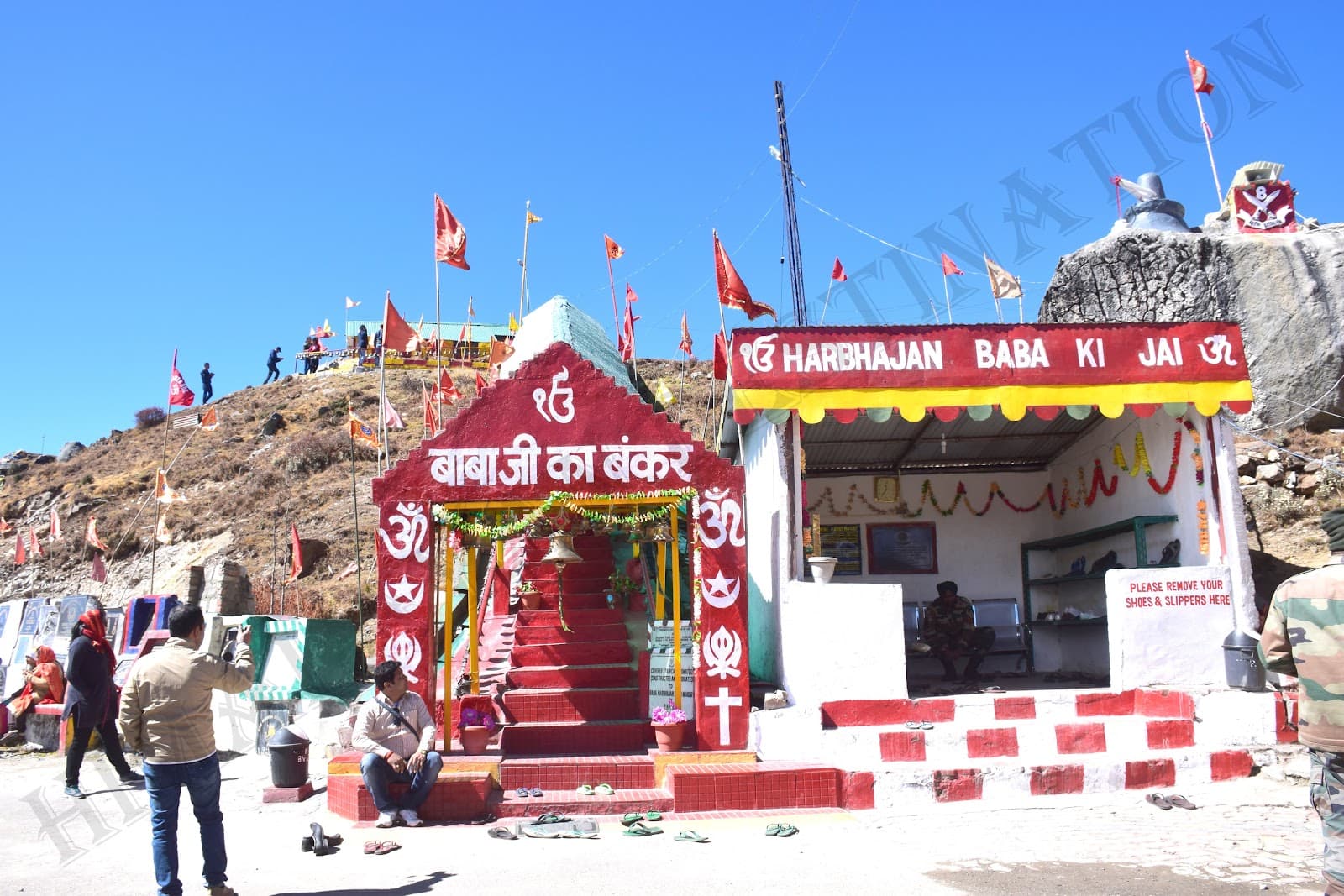
Old Baba Mandir
A revered shrine dedicated to Baba Harbhajan Singh, an Indian Army sepoy believed to protect the border, offering a unique blend of faith, legend, and...
Highlights
Must-see attractions

Social
From TikTok & Reddit
Best Time
Pleasant weather, clear views

Old Baba Mandir
Best Time
Pleasant weather, clear views
Highlights
Must-see attractions
A revered shrine dedicated to Baba Harbhajan Singh, an Indian Army sepoy believed to protect the border, offering a unique blend of faith, legend, and stunning mountain vistas.
"It's a small place, but it touched the heart, feeling more than just a temple."
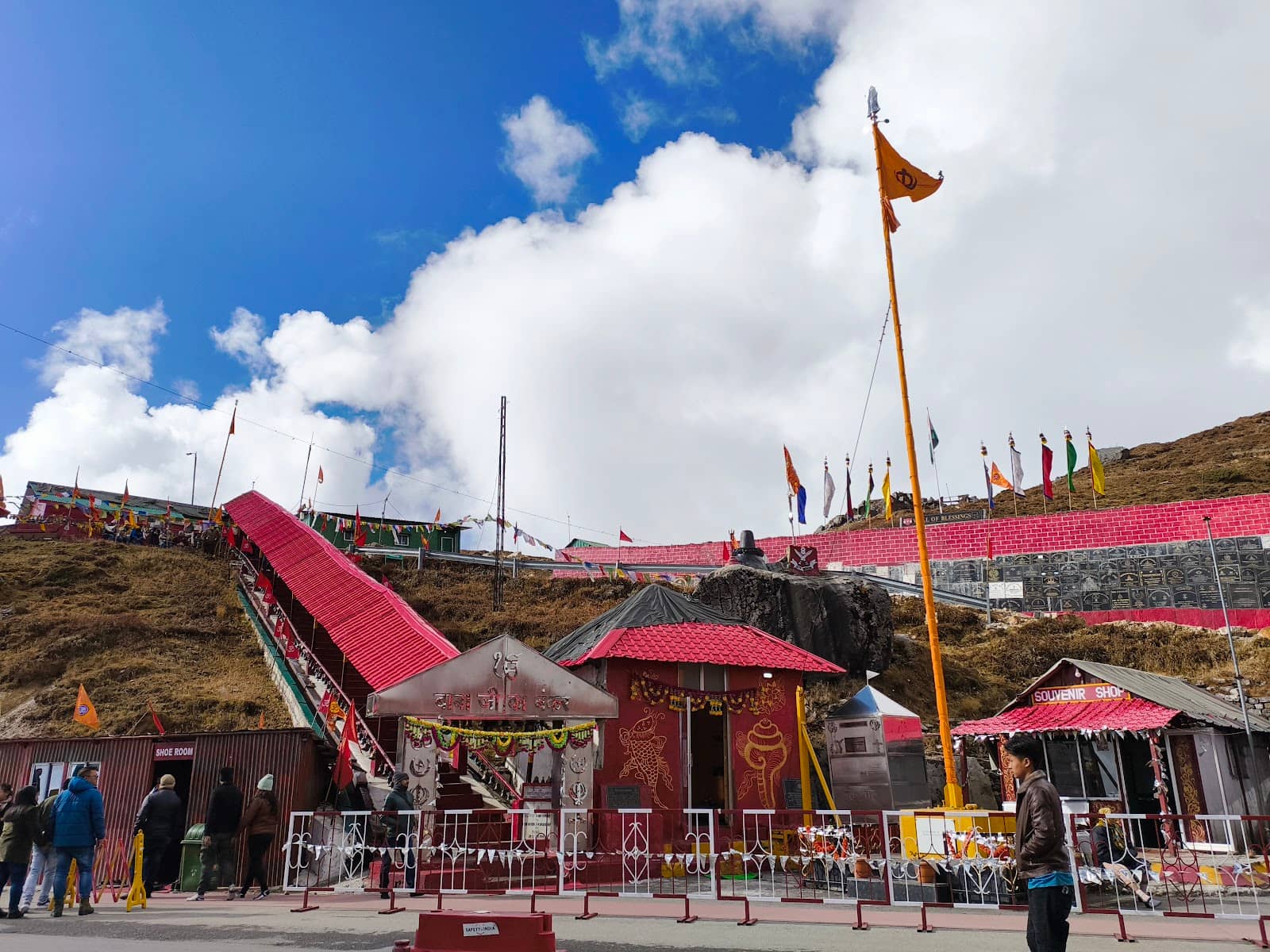
Warm Clothing is Essential
Temperatures drop significantly. Pack heavy woolens, gloves, and caps, especially for winter visits. :cloud:
Carry Snacks & Water
While there's an army-run cafeteria, carrying your own essentials is wise for the journey. :apple:
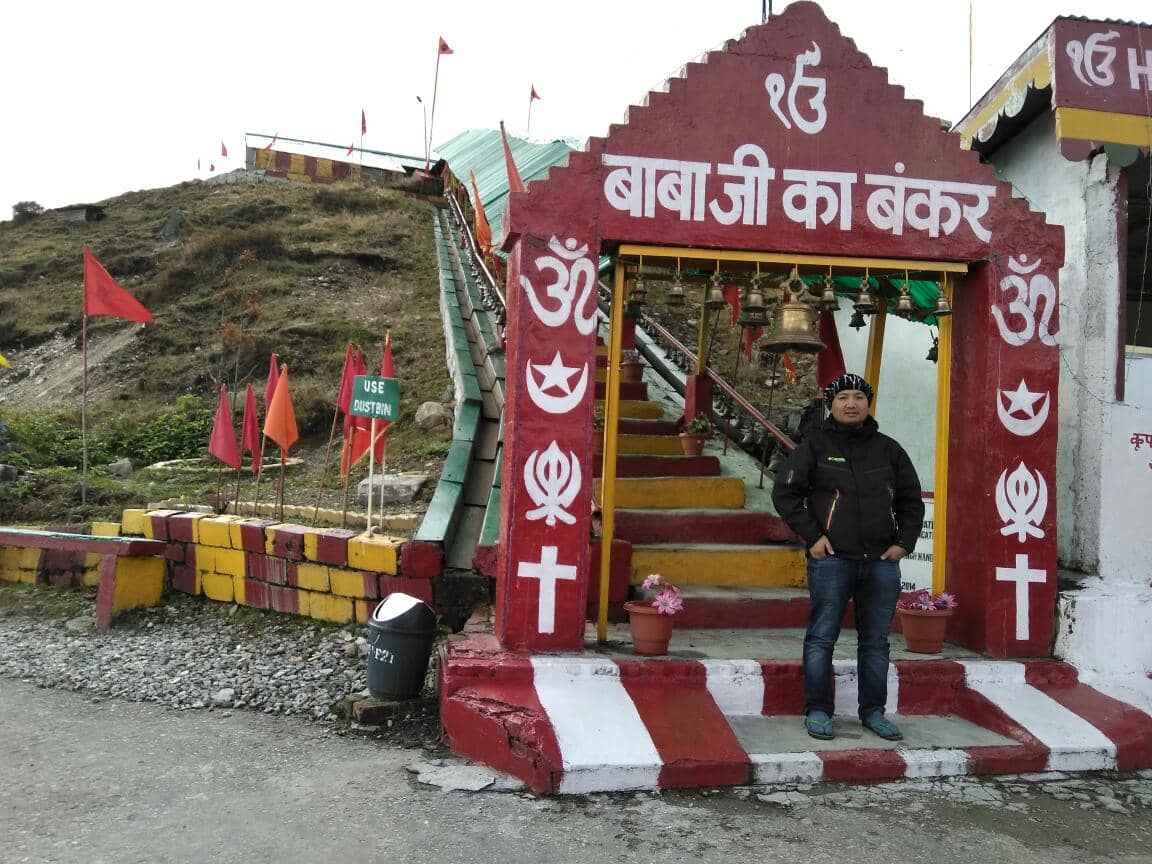
Highlights
Discover the most iconic attractions and experiences

Baba Harbhajan Singh's Bunker
Original shrine location
Explore the bunker where Baba Harbhajan Singh's belongings are preserved, a deeply moving experience for many.

Scenic Mountain Views
Surrounding area
Breathtaking vistas of valleys and mountains, offering a serene backdrop to this spiritual site.
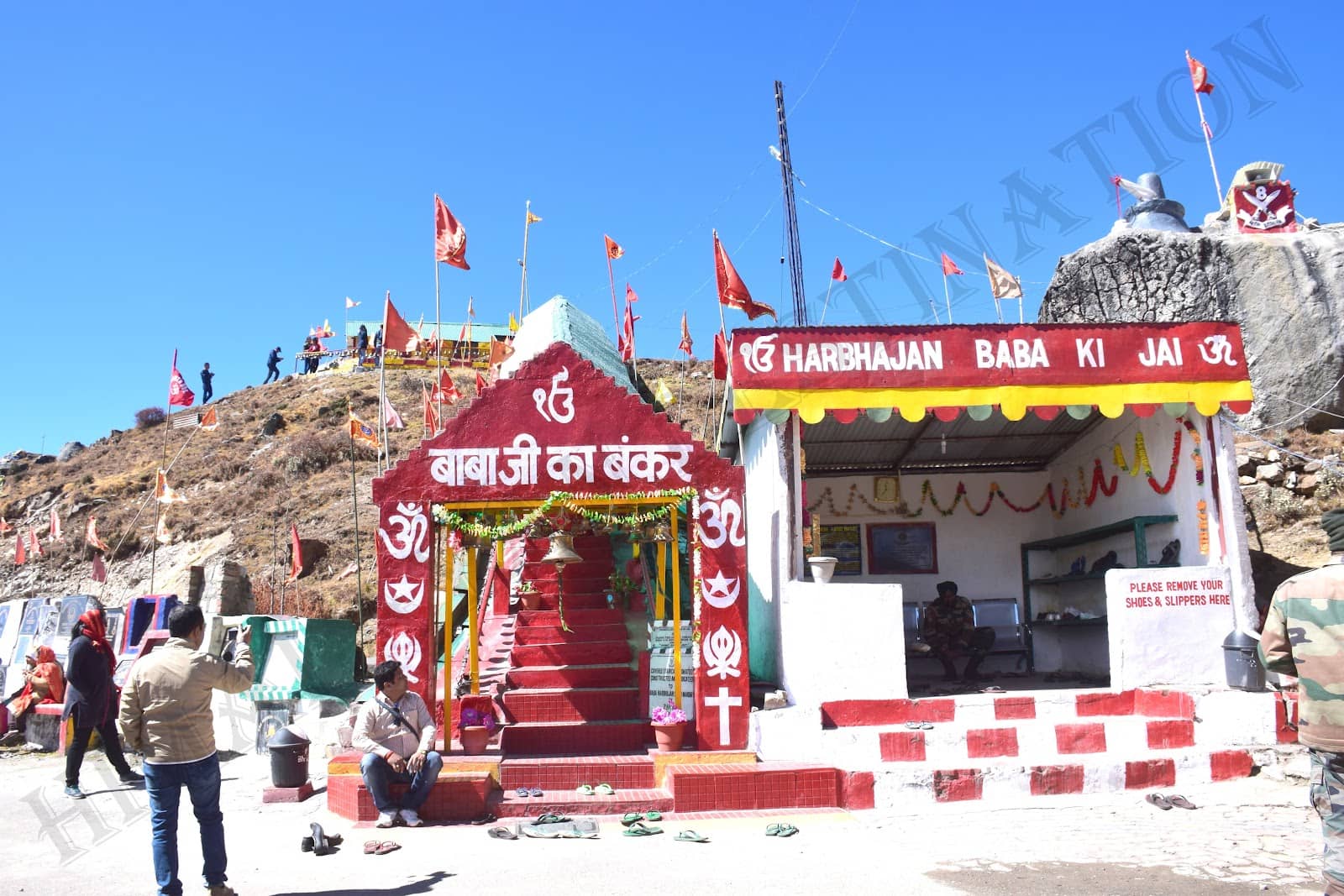
Ancient Silk Route Views
En route to the temple
Catch glimpses of the historic Silk Route and iconic zigzag roads on your journey to the shrine.
Plans like a pro.
Thinks like you
Planning Your Visit
Respect the Legend
Altitude and Weather Preparedness
Best Times
Insider Tips
from TikTok, Instagram & Reddit
Warm Clothing is Essential
Temperatures drop significantly. Pack heavy woolens, gloves, and caps, especially for winter visits. :cloud:
Carry Snacks & Water
While there's an army-run cafeteria, carrying your own essentials is wise for the journey. :apple:
Respectful Attire
Dress modestly out of respect for the religious nature of the shrine. :pray:
Be Prepared for Altitude
Take it easy, stay hydrated, and avoid strenuous activity to acclimatize. :mountain_snow:
Tips
from all over the internet
Warm Clothing is Essential
Temperatures drop significantly. Pack heavy woolens, gloves, and caps, especially for winter visits. :cloud:
Carry Snacks & Water
While there's an army-run cafeteria, carrying your own essentials is wise for the journey. :apple:
Respectful Attire
Dress modestly out of respect for the religious nature of the shrine. :pray:
Be Prepared for Altitude
Take it easy, stay hydrated, and avoid strenuous activity to acclimatize. :mountain_snow:
Army Cafeteria Delights
Try the momos and maggi at the army-run cafeteria for a warm bite. :ramen:
What Travellers Say
Reviews Summary
Visitors are deeply moved by the spiritual and emotional resonance of Old Baba Mandir, often describing it as more than just a temple due to the legend of Baba Harbhajan Singh. The preservation of his belongings and the serene atmosphere contribute to a profound experience. While the location is breathtaking, the challenging journey and unpredictable weather are common considerations.
"The place feels more than just a temple. There’s something emotional about it—maybe because of the story of Baba Harbhajan and the way people still respect him. Seeing his things kept with care and the silence around made the moment feel deep. It’s a small place, but it touched the heart."
Sayan Chatterjee
"Old Harbhajan Babaji Mandir, Sikkim: A Shrine of Legend and Faith
The Old Baba Mandir, also known as Old Harbhajan Babaji Mandir, is a revered pilgrimage site located near Zuluk in East Sikkim Old Harbhajan Babaji Mandir. It's dedicated to Baba Harbhajan Singh, a sepoy in the Indian Army who is worshipped as a saint. This temple holds immense significance for locals and tourists alike.
Key Features:
* Historical Significance: The Old Baba Mandir is the original shrine constructed in honor of Baba Harbhajan Singh. He is believed to protect soldiers stationed in this high-altitude region.
* Mystical Beliefs: According to legend, Baba Harbhajan Singh appeared in a dream after his death. It's believed that his spirit still patrols the Indo-China border.
* Location: The temple is situated at a height of approximately 13,000 feet, offering breathtaking views of the surrounding valleys and mountains. The journey from Zuluk is particularly scenic, with views of the iconic zigzag roads.
* Structure: The temple is built near Chhokya Chho. Visitors need to climb around 50 stairs to reach the bunker where the samadhi was initially constructed.
Things to Know:
* Visiting Hours: 7:00 AM to 6:00 PM.
* Ideal Duration: Approximately 2 hours.
* Weather: Temperatures vary significantly. Summers (May-September) are cool (5°C to 15°C): Chances of snow are very less, while winters (November-February) are harsh (down to -10°C or lower). Warm clothing is essential during winter."
Amrit Chatterjee
"Everything that needs to be said has been said about this holy shrine. The chilling and brave story, the glory. Absolutely must visit shrine baba ji. There are artifacts, historical and holy belongings inside babaji's bunker. You will also learn about the ancient silk route. This place is a once in a lifetime experience."
Dishant Bhatt
What People Like
What People Dislike
Frequently Asked Questions
🚇 🗺️ Getting There
The Old Baba Mandir is located near Zuluk in East Sikkim. You'll typically need to hire a private taxi or join a tour from Gangtok. The journey involves navigating scenic but winding roads, often part of the Old Silk Route circuit. Expect the drive to take several hours.
Yes, it's often visited as part of a day trip from Gangtok or Zuluk, especially if you're exploring the Old Silk Route. However, be mindful of the travel time and the need to acclimatize to the altitude.
Hiring a private taxi is the most convenient way to visit Old Baba Mandir, allowing flexibility. Many tour packages also include this destination. Ensure your vehicle is suitable for mountain terrain.
While not always explicitly mentioned for the temple itself, areas around Zuluk and the Old Silk Route often require permits for Indian nationals (Inner Line Permit) and special permits for foreign nationals. Check with your tour operator or local authorities.
The drive from Zuluk to Old Baba Mandir is relatively short, usually around 30-45 minutes, but the roads can be challenging. The overall journey from Gangtok will be much longer.
🎫 🎫 Tickets & Entry
There is generally no entry fee to visit the Old Baba Mandir itself. However, you will incur costs for transportation to reach the location.
The temple is typically open from 7:00 AM to 6:00 PM. It's advisable to check locally for any seasonal changes or specific timings.
You should allocate about 1-2 hours for visiting the temple and absorbing the atmosphere. This doesn't include travel time to and from the site.
Yes, you can visit during winter, but be extremely prepared for harsh cold and potential snow. Roads might be affected by snowfall, so check conditions beforehand. Warm clothing is absolutely essential.
Photography inside the bunker where Baba's belongings are kept might be restricted out of respect. Always check for signage or ask locals/army personnel before taking pictures.
🎫 🧭 Onsite Experience
It's a shrine dedicated to Baba Harbhajan Singh, an Indian Army sepoy believed to protect soldiers and the border. His story is deeply revered, and many visitors feel a spiritual connection.
You'll see the bunker housing Baba's personal belongings, artifacts, and a serene atmosphere. The surrounding mountain views are also a major draw.
Yes, at 13,000 feet, altitude sickness is a possibility. It's recommended to take it slow, stay hydrated, and avoid overexertion.
There is a cafeteria run by the Indian Army offering basic food items like momos, maggi, and hot beverages. Restrooms might also be available.
Expect a calm, spiritual, and respectful atmosphere. The place is maintained by the Indian Army, contributing to its disciplined and serene environment.
🍽️ 🍽️ Food & Dining
There's an army-controlled cafeteria right at the Old Baba Mandir site that serves popular items like momos, maggi, noodles, coffee, and tea.
The cafeteria offers simple, hearty snacks and beverages suitable for the high-altitude climate, including momos, maggi noodles, and hot drinks.
Dining options are very limited in the immediate vicinity of the temple. It's advisable to have your main meals in Gangtok or Zuluk before heading to the Mandir.
While the cafeteria is convenient, carrying some personal snacks and water is always a good idea, especially if you have specific dietary needs or during off-peak hours.
Prices at the army-run cafeteria are generally reasonable, considering the remote location and logistical challenges.
📸 📸 Photography
The surrounding mountain landscapes offer stunning photographic opportunities. The approach to the temple and the views from higher points are also picturesque.
Photography inside the bunker where Baba's personal belongings are kept is often restricted out of respect. Always check for signs or ask permission.
Landscape photography capturing the majestic Himalayas and the serene temple setting is very popular. Capturing the journey along the winding roads is also a common theme.
Early morning or late afternoon often provides the best light for landscape photography, with softer shadows and warmer hues. However, weather can be unpredictable.
Besides potential restrictions inside the bunker, be mindful of the military presence in the area and avoid photographing sensitive installations.
For Different Travelers
Tailored advice for your travel style
👨👩👧 Families with Kids
Pack plenty of snacks and warm clothing for everyone. The army cafeteria offers simple food options that are usually kid-friendly. While the spiritual aspect is central, the stunning mountain views can also captivate young minds. Keep the visit brief and focused on acclimatization and the main shrine to avoid overexertion.
🚶 Budget Travelers
Carry your own water and snacks to save money, as options are limited and can be pricier at high altitudes. Focus on the experience and the views, which are free! Many travelers find the spiritual and scenic aspects to be the most rewarding, making it a worthwhile destination even on a budget.
🧘 Spiritual Seekers
The serene mountain setting further enhances the spiritual ambiance. Many pilgrims visit to seek blessings and express gratitude. The simplicity of the shrine, maintained with care, allows for a genuine connection to the spiritual energy of the place. It's a destination that resonates with those seeking a blend of faith, history, and natural beauty.
Deep Dives
In-depth insights and expert knowledge
The Legend of Baba Harbhajan Singh
His story is deeply ingrained in the local culture and military folklore. Visitors often feel a profound sense of respect and awe, connecting with the bravery and sacrifice associated with his legend. The artifacts preserved in the bunker, including his uniform, boots, and other personal belongings, serve as tangible reminders of his life and enduring presence.
This unique blend of faith, military service, and local belief makes the Old Baba Mandir a significant pilgrimage site. It's a place where the spiritual and the patriotic converge, offering a deeply moving experience for those who visit.
Navigating the Old Silk Route
Traveling this route requires careful planning, as permits are often necessary for both Indian and foreign nationals. The landscape transforms dramatically with altitude, showcasing lush valleys, snow-capped peaks, and diverse flora. The drive itself is an adventure, with numerous viewpoints offering panoramic vistas of the Himalayas and the surrounding terrain.
Key points along the route include Lungthung, Thambi View Point, and the Kupup Valley, known for its 'Elephant Rock' and the highest golf course in the world. The Old Baba Mandir is a significant spiritual stop within this adventurous circuit, adding a layer of cultural and historical depth to the scenic journey.
Understanding the Climate and Altitude
The weather at this altitude is highly variable and can change rapidly. Summers (May to September) are generally cool with temperatures ranging from 5°C to 15°C, offering pleasant conditions for visiting. However, winters (November to February) are extremely harsh, with temperatures plummeting to -10°C or even lower, often accompanied by heavy snowfall. Warm clothing, including thermal wear, heavy jackets, gloves, and caps, is absolutely essential, regardless of the season, as evenings and early mornings can be quite cold.
Visitors should always check the weather forecast before their trip and pack accordingly. Layering clothing is the best strategy to adapt to fluctuating temperatures. The challenging climate adds to the adventurous nature of visiting this remote and sacred site.
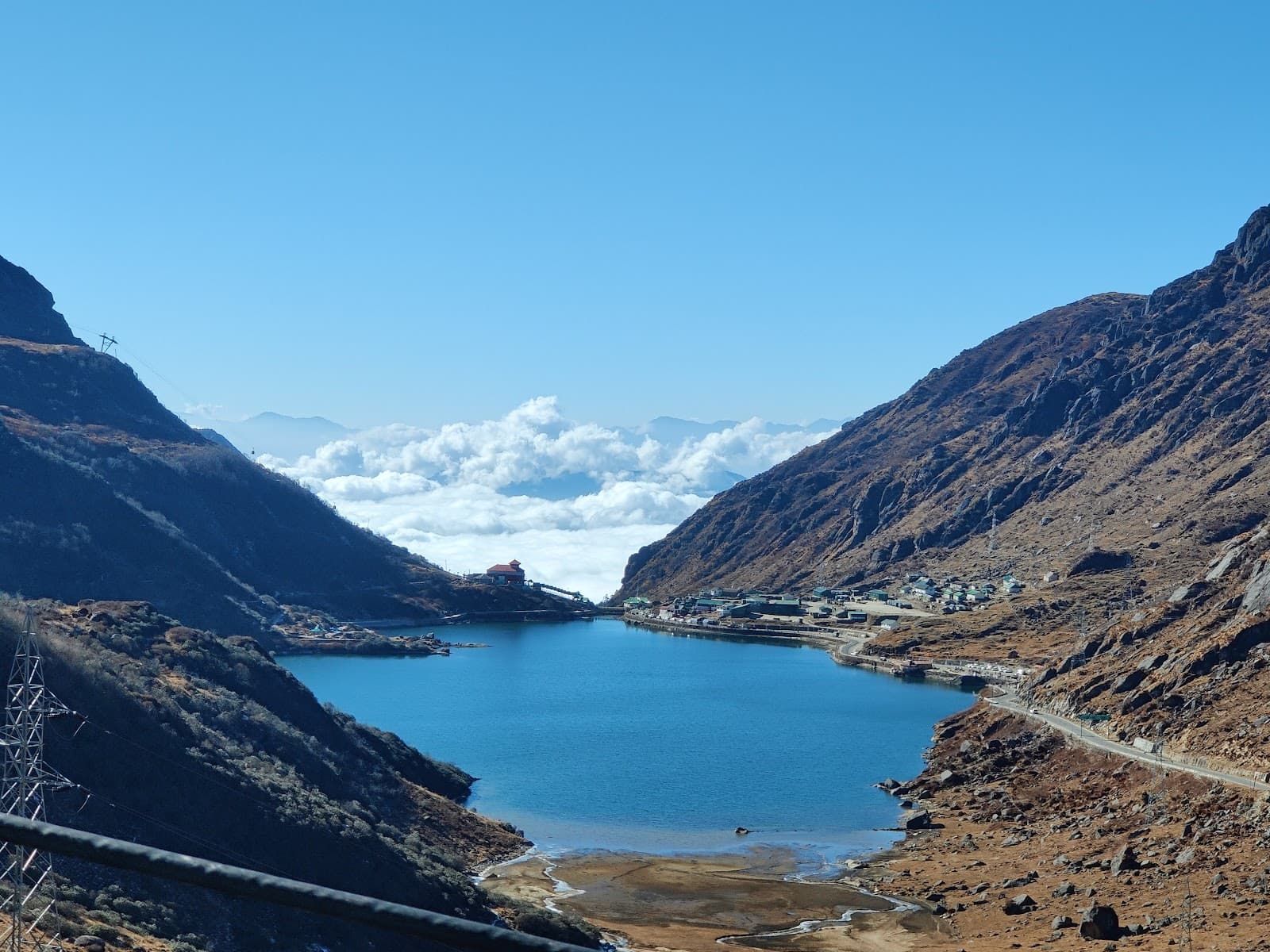


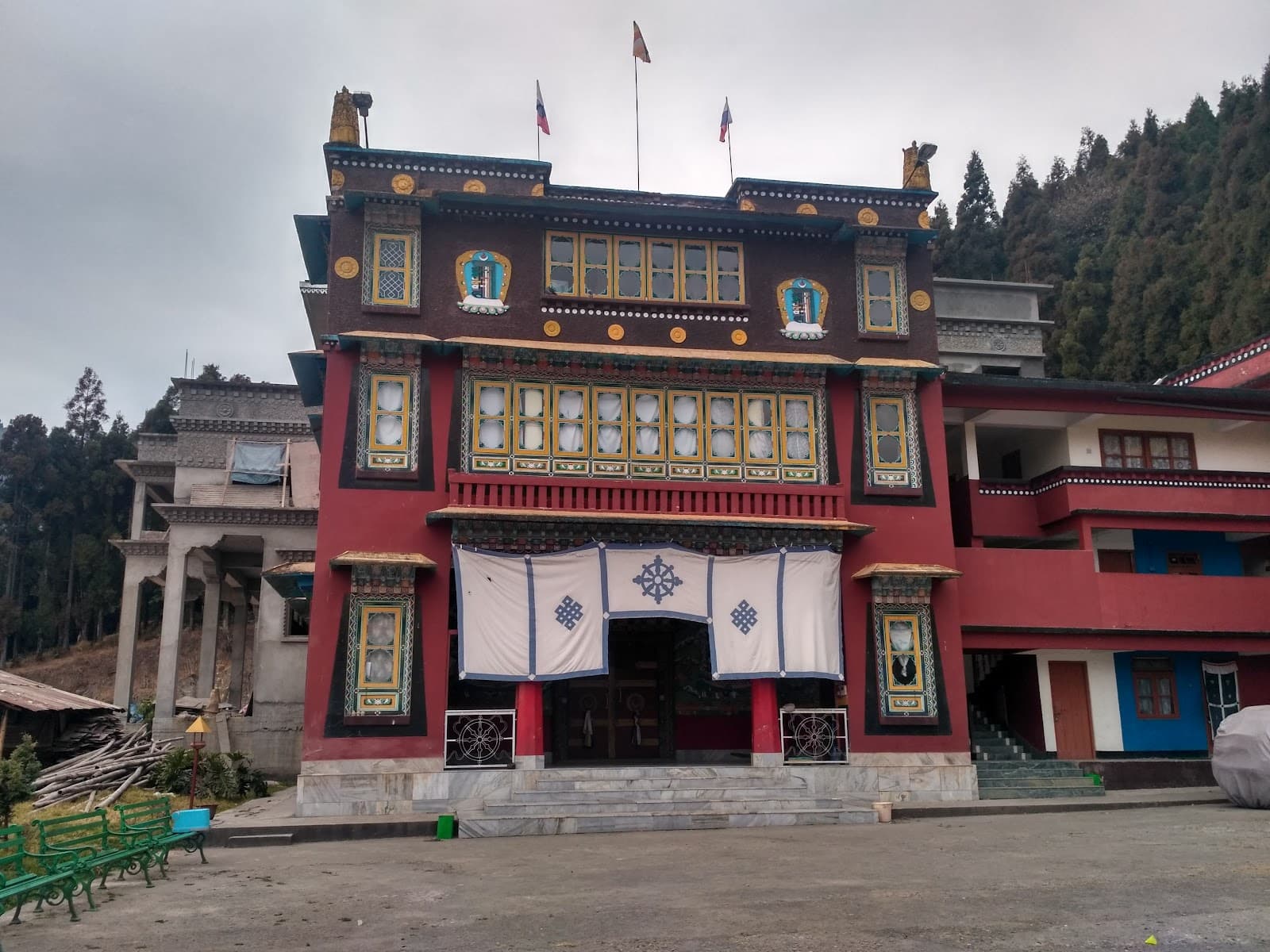
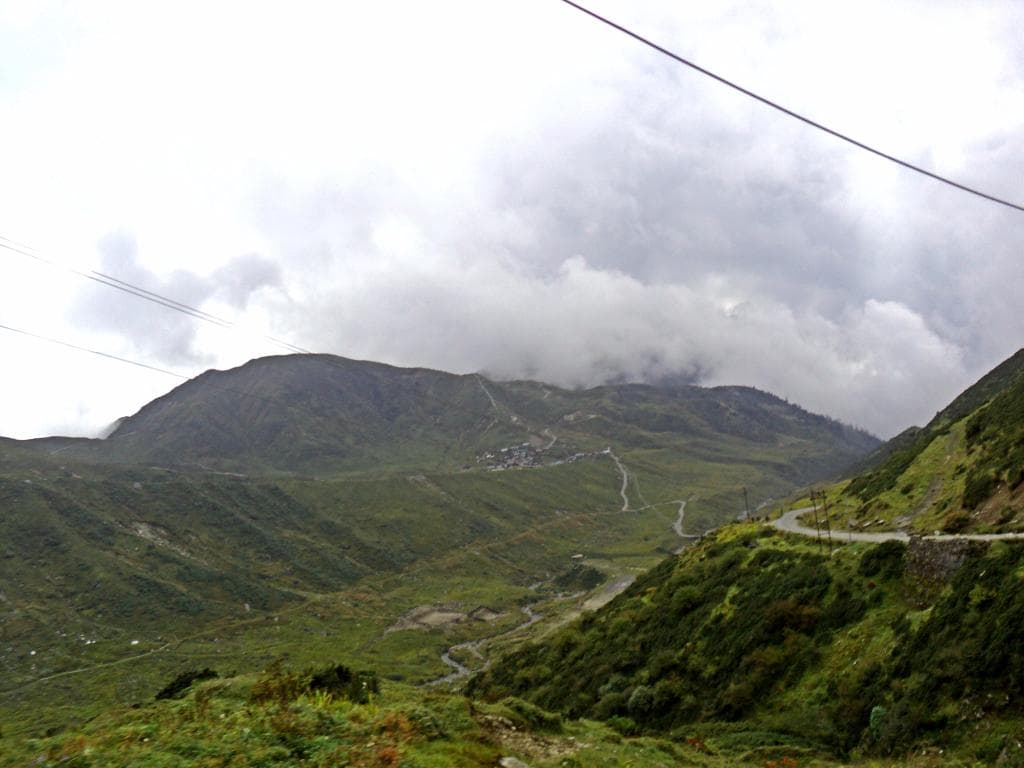
Social
from TikTok, Instagram & Reddit